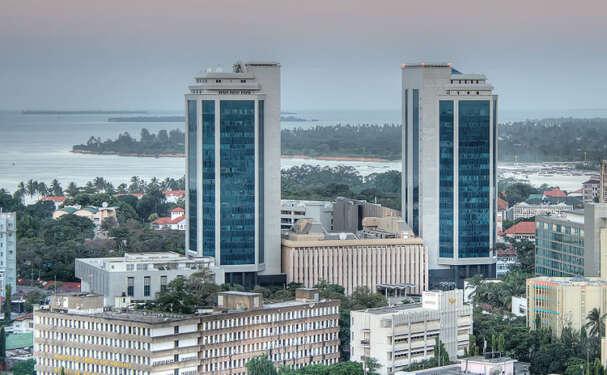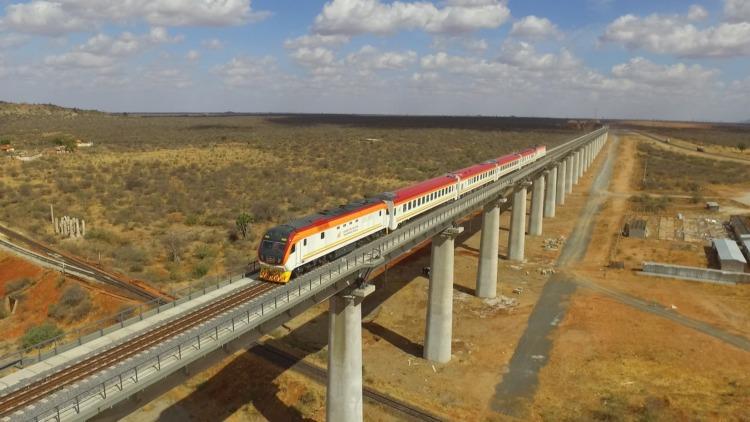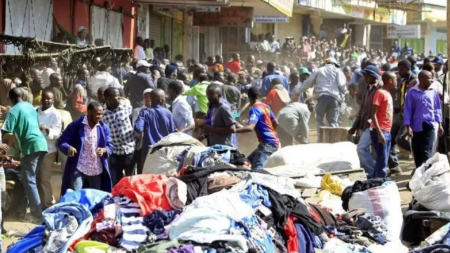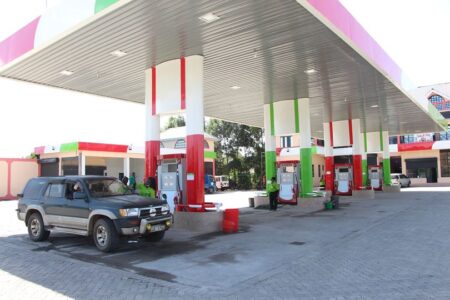The central bank of Tanzania (BoT) released its monthly economic review on Wednesday 10 2021 for February. The economy was painted by the report on a rather satisfactory base reflected in several sectors of the economy such as exports, food prices, money and credit.
Inflation
In this sector of the economy, the performance was stable, as according to the new published CPI remained within the target range of 3.5 per cent for 2020/21. Further, the twelve-month headline inflation was standing at 3.5 per cent in January 2021 from 3.2 per cent in the previous month and projected to remain low in the remaining period of 2020/21.
Fuel Prices
The report noted that pump prices of petroleum products have been rising since June 2020 attributed to the gradual increase in prices in the world market.
“The prices were lower in January 2021 compared with the corresponding month in 2020. Compared to December 2020, pump prices of all petroleum products, with exception of petrol, were higher in January 2021,” the report said.
Money Supply
The boT has continued to furnish this sector as the growth of money supply is improving as the central bank sustained implementation of monetary policy easing to facilitate economic activities and private sector credit growth.
“Extended broad money supply (M3) grew by 6.4 per cent in the year ending January 2021 compared with 5.7 per cent and 9.1 per cent in December 2020 and January 2020, respectively. Broad money supply (M2), grew by 7.7 per cent compared to 8.2 per cent and 11.4 per cent,” the report noted.
Further, on credit things were satisfactory as credit extended by banks to the central government and private sector grew at an annual rate of 6.2 per cent in January 2021 compared with 10.8 per cent in December 2020 and 6.6 per cent in January 2020.
The report also indicated that the profile of private sector credit by economic sector pointed to rather significant growth in lending to personal activities (enterprises—micro and macro), transport and communication and hotels and restaurants.
Government budget operations
Tanzania’s domestic revenue has sustained rather satisfactory performance across revenue sources, whereby the monthly report revenue amounted to more than $661 million, of which around $636 million was from central government, and the balance was from local government own sources. Tax revenue amounted to over $545 million, while non-tax revenue was over $90 million.
Debt
The external stock of debt for Tanzania remained to mount—which comprise of the public and private sector to over $24.5 billion at the end of January 2021. Further, the report argued that the debt level marked an increase of $398.94 million from the preceding month.
Hence, the monthly report showed that government-related development projects have been attracting the most external loans.
On the stock of domestic debt, things were moderate—whereby the domestic debt amounted to $6.7 billion, a decrease of $221 million from the preceding month, but also—it was an increase of $442863.
External sector
The central bank report also pointed out the performance of the external sector of the economy—arguing that it remained satisfactory, despite sustaining the virus pandemic global shocks.
“During the year ending January 2021, the current account deficit narrowed significantly to $ 372.5 million from a deficit of $ 1,238.7 million in the corresponding period of 2020. The improvement was largely driven by the decrease in imports of goods and services, which declined by $ 1,786.6 million, much of it reflected in imports of goods. The overall balance of payments recorded a deficit of $264.8 million, compared with a surplus of $700.7 million in the corresponding period of 2020, owing to relatively low external financial inflows during the year to January 2021,” the report cited.
Also, the central bank report showed that foreign exchange reserves remained sufficient, amounting to more than $5.2billion at the end of January 2021. The reserves could cover about 6.2 months of projected imports of goods and services.
Exports
In this category of the economy, the performance was moderate. According to the report—exports of goods and services amounted to $ 8.7 billion in the year ending January 2021 which is a slight decrease from $9.8 billion registered in the corresponding period in 2020.
“Traditional exports amounted to $ 705.4 million from $959.7 million, accounting for 8.1 per cent of total exports. Export of all major cash crop exports namely coffee, cotton, tea, sisal, cashew nuts, clove and tobacco declined. Non-traditional exports increased to $ 5.298.7 billion from $ 4.268.9 billion, driven by the good performance of minerals (except diamond), manufactured goods and horticultural products particularly edible vegetables and fruits,” the report noted.
Further, the performance of the mining sector was promising, as the export of gold increased by $ 666.9 million to 42.970.5 billion on account of both volume and price effects, and accounted for 49.5 per cent of the non-traditional exports.
The report also had its eye on the month-to-month basis, whereby exports of goods and services amounted to $ 700.7 million in January 2021 compared with $ 923.5 million in the same period in 2020.
Also, the value of traditional goods exports decreased to $ 48.1 million from $ 161.8 million, largely explained by the low export performance of cashew nuts, tobacco, and cloves. Non-traditional exports rose to $ 369.8 million from $365.1 million.
Imports
The BoT report indicated that imports of goods and services went down to $ more than 8.7 billion in the year ending January 2021 from $10 billion in the corresponding period of 2020.
The central bank argued that the decrement of the imports was attributed to imports of oil and transport equipment.
“Oil imports declined by 35.6 per cent to $ 1.1 billion and accounted for 15.8 per cent of goods import and 13.6 per cent of imports of goods and services. The low oil import bill is largely explained by the decline in prices in the world market by 35.2 per cent to $ 41.5 per barrel in the year to January 2021. Meanwhile, imports of transport equipment dropped by 21.2 per cent to $ 763.8 million. On monthly basis, goods import bill decreased to $ 663.8 million from $ 786.7 million recorded in January 2020, largely attributed to a decline in intermediate goods particularly industrial raw materials,” the report analyzed.
Read:What Tanzania central bank say about Q4 2020 performance











